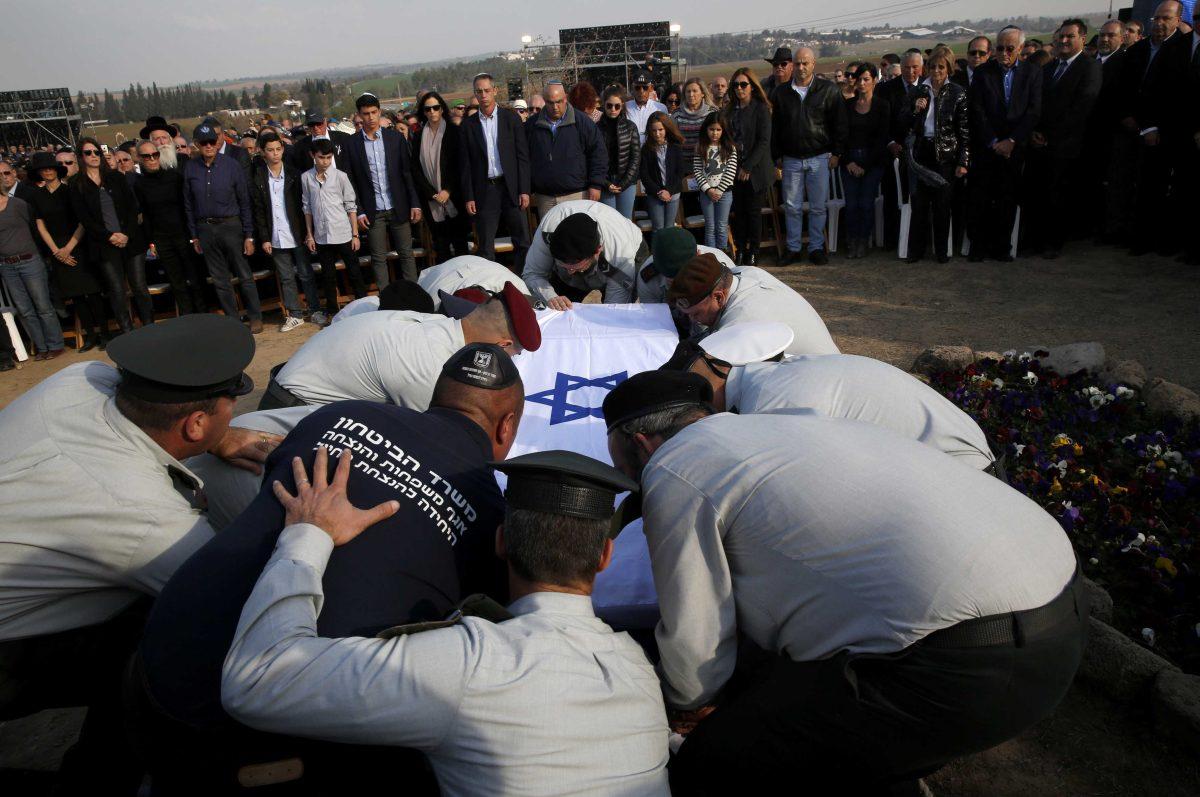On Jan. 11, Ariel Sharon — former prime minister and defense minister of Israel — passed away, leaving behind a controversial legacy on not just Israel’s policy toward Palestine but on Zionism itself.
Soon after Sharon’s passing, many of my peers on Facebook aired their condolences for Sharon. Although this is common for the passing of a world leader, people should be more cautious with one of the largest influences on 20th century history because there is another perspective that needs to be known about his dark legacy.
As students ready to shape the future, we should be interested in such an important man’s actual legacy instead of the public image that the media portrays.
Sharon is nicknamed the “Bulldozer” in reference to his hand in pushing for illegal Israeli settlements in the West Bank and the many incidents when Israeli bulldozers crush Palestinian homes, sometimes with families in them.
He was involved in every major war in Israel’s history from the Arab-Israeli War of 1948 to the war that ended his military career in 1982, as well as the deaths of many civilians throughout the wars.
His first brush with controversy followed his patriotic service in the Israeli War for Independence. He created Unit 101 Special Forces of Israel’s Armed Forces, famous for long-range military actions. One such action was the Qibya Massacre, which killed 69 Palestinian civilians, mostly women and children — more than 13 times the casualties of our own Boston Massacre that sparked the American Revolution.
After the international community condemned the attack, Israel denied responsibility. Sharon later wrote that he thought the homes were empty, yet he didn’t regret his actions because he believed that it would deter future terrorist attacks.
He was wrong.
He later became a legend in his military service during the 1973 Yom Kippur War when he violated his superiors’ orders and crossed the Suez Canal, virtually ending the war by pushing deeper into Egyptian territory. His defense of the Sinai and invasion of Egypt led to great popular support.
After the war, he became defense minister and in 1982 invaded Lebanon, making Israel an aggressor instead of a victim in the eyes of the world.
During the 1982 Lebanon War, Sharon caused a major worldwide incident with his involvement in the Sabra and Shatila massacres which, according to Israeli journalist Amnon Kapeliouk of Le Monde diplomatique, killed more than 3,000 civilians, mostly women and children.
That’s more deaths than the Sept. 11 attacks on the U.S.
After the massacres, Israel’s Knesset found Sharon bore “personal responsibility” for the deaths. Sharon refused to resign as defense minister, but eventually was forced to and was banned by the Israeli government from ever holding the position.
Sharon’s actions in 1982 marked his legacy as a war criminal, yet it didn’t deter his political comeback in 2000 when he sparked the second intifada by making a controversial visit to the Temple Mount complex and declared the complex under Israeli control.
After the second intifada, Sharon rose to become Israel’s 11th prime minister, and spent his time pushing for the illegal Israeli settlement buildup that seek to permanently annex the West Bank from the nation of Palestine slowly but surely. This continues to affect the country beyond the grave.
Although Sharon’s legacy is up for debate, we must not get caught up in ceremonial R.I.P.’s when he denied it to thousands he killed in the name of Zionism. While he was a hero for hardline Zionists, a recent Gallup poll shows 73 percent of Israeli Jews don’t share this belief. Instead, they want to push for nonviolence and negotiations as a way to deal with Palestine.
I’m hoping we can all peer through the media veil around issues in Israel in the future, and that these sorts of deaths don’t continue to repeat themselves, ruining a chance for peace.
Joshua Hajiakbarifini is a 24-year-old political science and economics senior from Baton Rouge.
Opinion: The Butcher of Beirut leaves behind legacy
January 15, 2014
Israeli army officers lower the coffin of former Israeli Prime Minister Ariel Sharon into the grave during his funeral during his funeral near Sycamore Farm, Sharon’s residence in southern Israel, Monday, Jan. 13, 2014. Sharon was laid to rest Monday at his ranch in southern Israel as the nation bid a final farewell to one of its most colorful and influential leaders — a man venerated by supporters as a warrior and statesman but reviled in the Arab world as a war criminal.(AP Photo/Baz Ratner, Pool)
More to Discover











